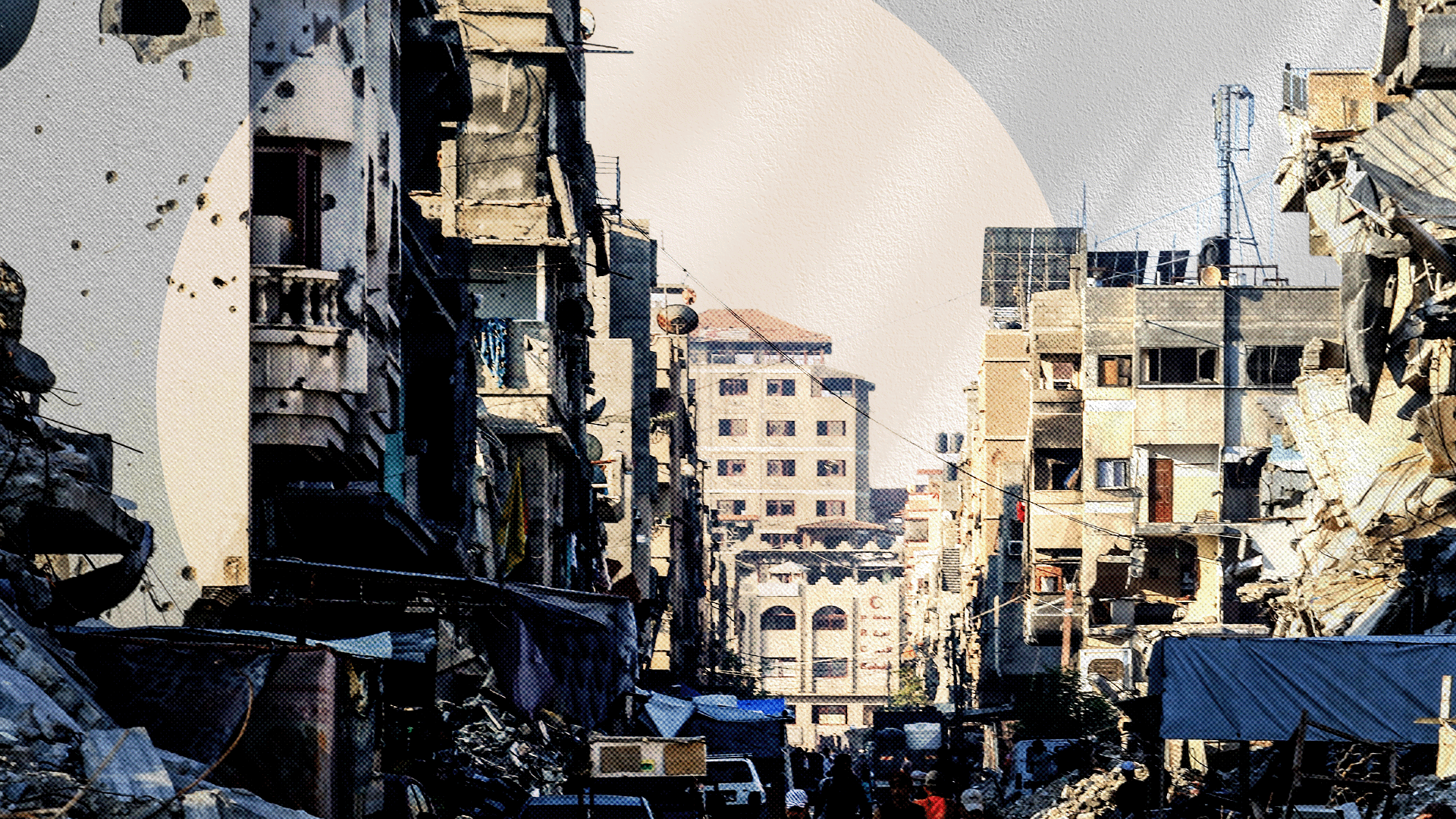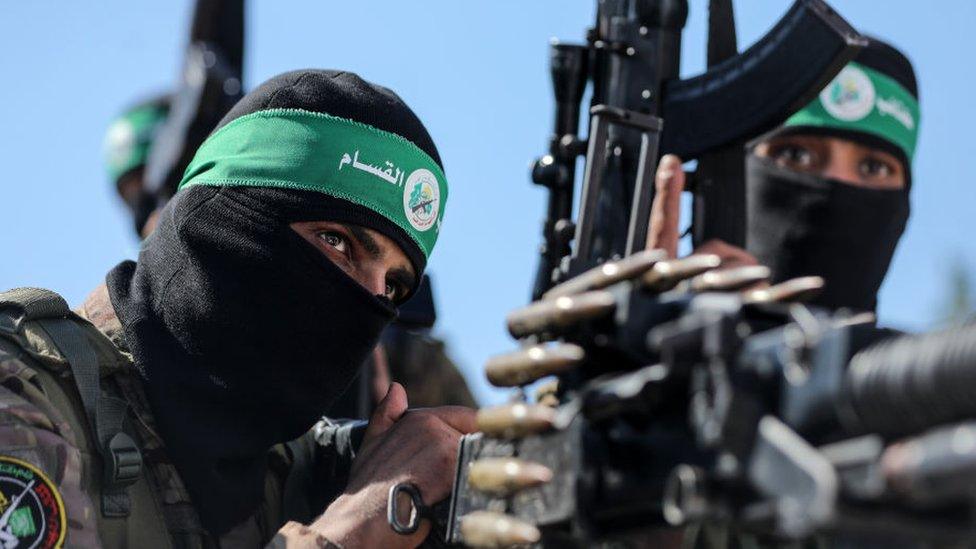Gazans in survival mode with cold nights and food rations
- Published
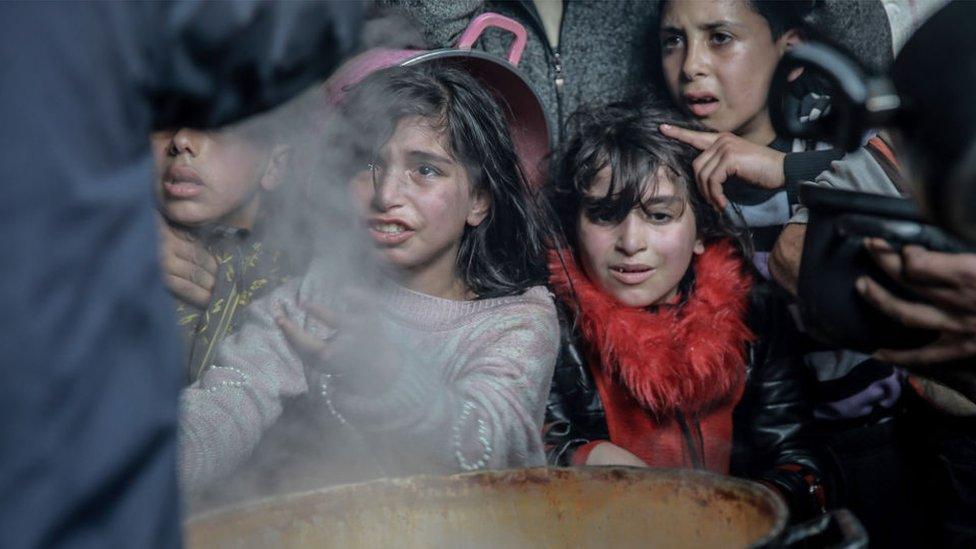
Children are among those who are relying on charities and volunteers for food handouts in Gaza
This morning dawned with news of US President Joe Biden's hopes for an imminent ceasefire between Israel and Gaza, but many on the Gaza Strip could not think beyond scraping together breakfast.
"Before the war we used to buy bread, now we make it," said 26-year-old journalist Aseel Mousa.
The BBC has spent the day following the lives of people across Gaza - as they scoured markets for food, worked in overcrowded hospitals and tried to keep their children entertained.
There were periods where we did not hear from our contacts - messages remained on one tick on WhatsApp and phone calls went to voicemail.
The Israel-Gaza war erupted on 7 October when Hamas gunmen infiltrated southern Israel, killing about 1,200 people and taking 253 others hostage.
About 130 are still being held in Gaza, and we could not speak to them. Relatives in Israel are left waiting, with no idea of the conditions they are being held in.
At least 29,800 Palestinians have been killed, according to Gaza's Hamas-run health ministry.
This is a day in the life in Gaza.

05:00: In Rafah, 59-year-old Sami Abu Omar wakes up early after a "hard night".
"Any person in this situation has to get used to sleeping for an hour to an hour and a half only," he says, describing the sound of bombing.
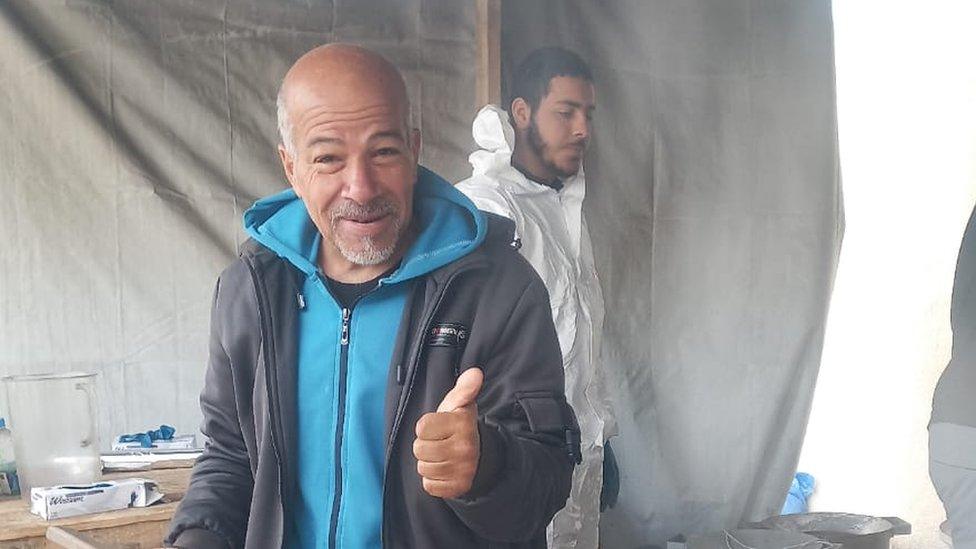
Sami is one of the volunteers at a soup distribution centre for displaced families in Rafah
After getting out of his tent, he prays and then heads to a distribution centre, where he will serve up lentil soup to displaced families.
07:00: In the central city of Deir al-Balah, nurse Rewaa Mohsen changes the nappies of her two young daughters. One was born two days before the war.
She says each day now follows the same routine of trying to survive and care for her children. After changing their nappies, she prepares breakfast.
09:00: Elsewhere in Deir al-Balah, 22-year-old medical student and volunteer doctor Nagham Mezied takes a photo of her breakfast.
She used to eat at 06:00 but has recently been pushing it back to try to stave off hunger later in the day. The dish this morning is called Mankouche - cheese, herbs pepper and olive oil on bread.
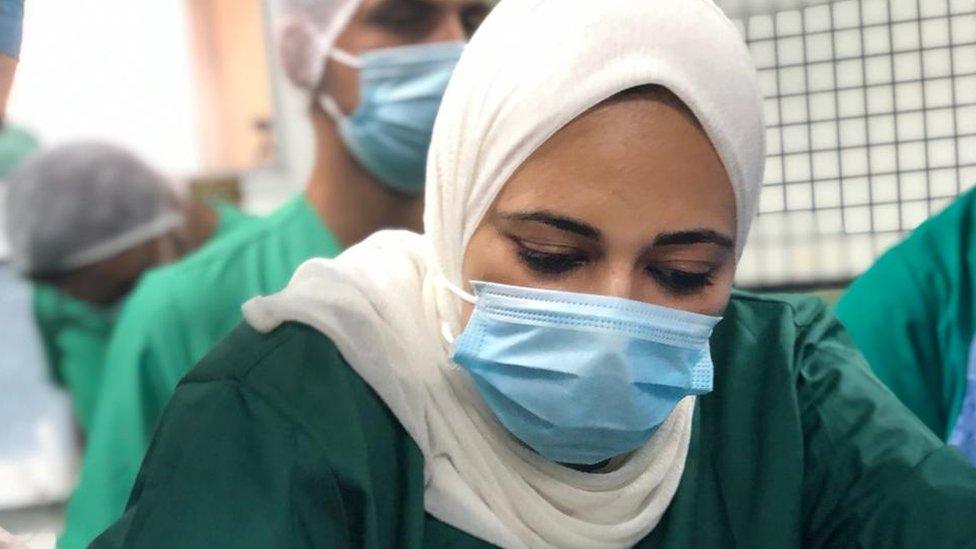
Nagham Mezied attends a patient at al-Aqsa Martyrs Hospital in Deir al-Balah
"This is all I eat until the evening, if we are lucky to have another meal then, otherwise this is all until tomorrow."
09:30: Lawyer Mosa Aldous is walking in Rafah after a restless night in his tent. "It was so cold," he says.
He can see long queues for food and water, but his attention this morning is on finding an internet connection.
"Now I am two kilometres away from my tent, trying to find signal but it is still very weak. I am slowly, slowly walking further from the tent," he says.
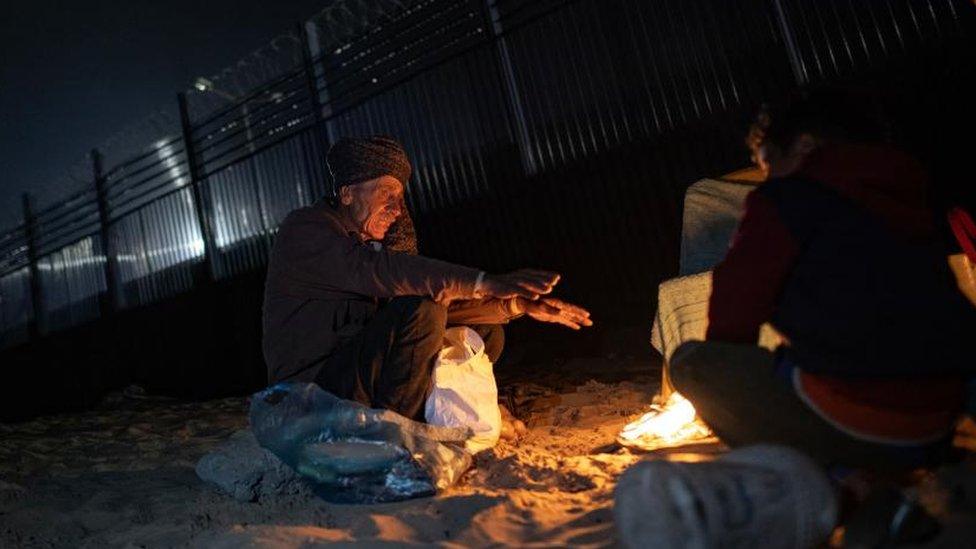
Many Gazans in Rafah are living inside tents and struggling to keep warm at night
11:00: Journalist Aseel Mousa is also in Rafah, but in a flat. She "seized the chance" to do some work in the morning after finding that she had power and an internet connection.
Now, she is in the process of making bread with her mum. "We get wood, start a fire, make dough, put it into portions, let it rise. This is what we're doing now. This process takes at least three hours," she says.
11:00: At around the same time, there is excitement in Rafah as Mosa sees aid being delivered by plane. Crowds gather on the beach.
"We suddenly heard loud noises in the sky so went out and saw large aeroplanes throwing aid via parachutes," he says.
11:30: Back at the food distribution centre, Sami Abu Omar says four big pots of soup have already been served up.
"Today it's cloudy and there might be rain soon. Our mothers, when this kind of weather comes, make lentil soup, so we've done this too for the displaced people so they feel more like they're at home," he says.
12:40: Aseel Mousa and her mum have finished making the bread, which they ate with tinned beans and eggs.
"It wasn't nice, I don't like canned food, but this is what is available in Gaza," she says.
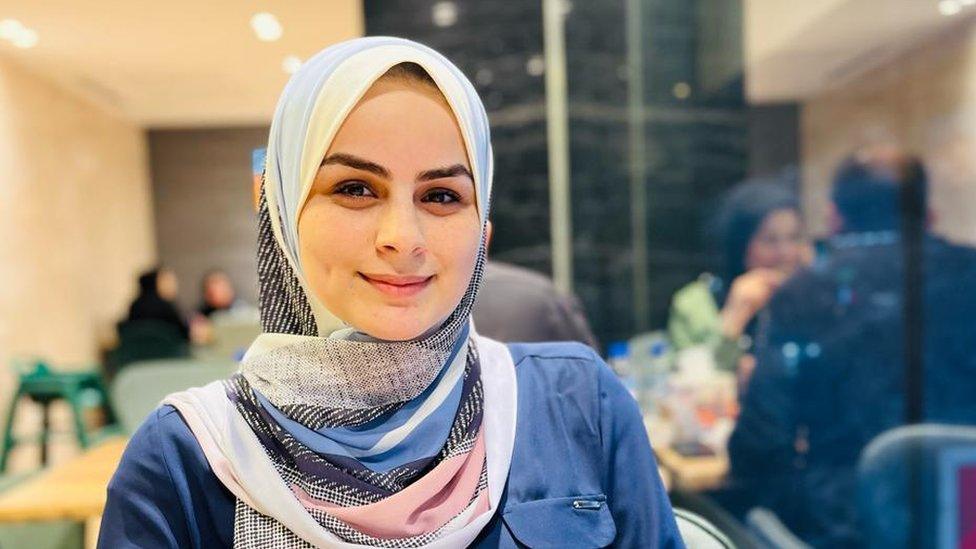
Aseel used to enjoy pastries for breakfast - now she relies on tinned food
"I used to eat cheese and toast in the morning but now these kinds of food are not available. So it wasn't good. But the bread was perfect because me and my mum prepared it."
In the past, she says, she would have ordered breakfast to her office: cinnamon rolls or pastries.
She has sent her laptop to a neighbour who has solar panels so it can be charged. She does this every day.
14:30: Nurse Rewaa Mohsen is trying to keep her eldest daughter entertained.
"She has her cousins to play with. Also has toys," she says over a WhatsApp message. "We try to keep her busy so she doesn't hear the bombs."
She plans to nap soon with her two daughters.
14:40: Back in Rafah, lawyer Mosa Aldous says he has given up on trying to find connection. Over a patchy line, he says he is with his family again in their tent. The line goes dead.
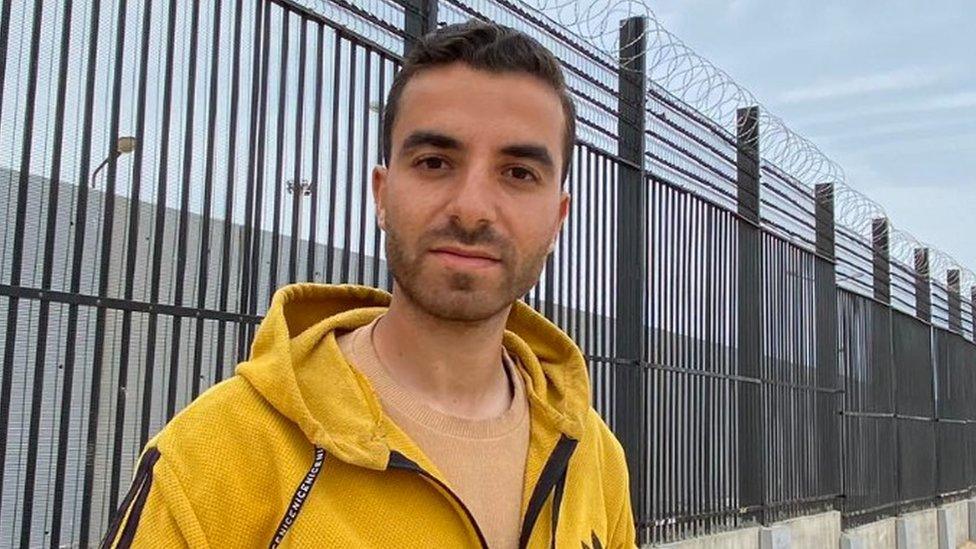
Mosa struggled to get signal to speak to the BBC - internet connectivity is sporadic across Gaza these days
15:30: Rewaa's hopes of napping did not go to plan. She sends a video of her daughter with her eyes wide looking at the camera and adds a grinning emoji.
"She refuses bottled milk. I gave her some in the first month and after that it was not available so she is dependant on breast milk," she writes.
"My mum and only sister were killed in November and I don't have anyone to help me with them [her children]."
16:13: At al-Aqsa Martyrs Hospital where she volunteers, Nagham Mezied reflects on the "harsh realities of war".
"Overflowing with displaced people seeking shelter - it has become a refuge for those who have lost everything: their homes, their loved ones, their sense of security."
She says diseases are spreading and that they are struggling with shortages of basic equipment and supplies.
16:37: Rewaa sends a picture of her lunch - chicken with peppers and olives. She says the ingredients cost them more than $40 (£32). It will be the last meal she will eat today.
"We are blessed that we can afford two meals. Some people can't afford any," she says.
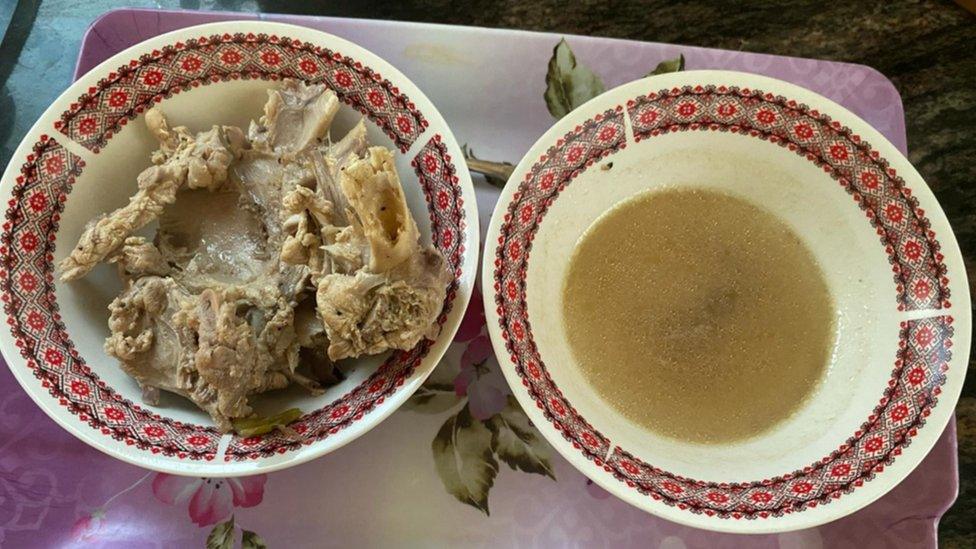
Rewaa still manages to provide two meals a day for her family but she says the ingredients are becoming unaffordable
As she feeds her daughters she thinks, too, about how rising prices are affecting caring for them.
Her eldest daughter is wearing the same clothes as when the war began. She struggles to afford nappies.
17:17: Aseel, the journalist, reminisces about her former life.
"Before the war at this time, I used to be coming back from work to my home, and then I would relax on my bed and talk to my mum about my day. Now, it is not just boredom - it's anxiety, tension all the time," she says by WhatsApp message.
"Now we will prepare lunch, which will be canned peas, because there is nothing fresh. We only really eat tinned food."
19:45: Volunteer doctor Nagham Mezied finished her shift a couple of hours ago.
She dreams of having a hot shower "to release the fatigue of the day" but there is no gas and no water.
She gets ready to cook some dinner - most likely tinned chickpeas and fava beans - and then will go to sleep.
"The day in Gaza now ends early as we have no internet and no electricity - we have nothing to do. We try to sleep early and have some rest in case the night brings bombs and terror."
Additional reporting by Muath Al Khatib
Related topics
- Published26 February 2024
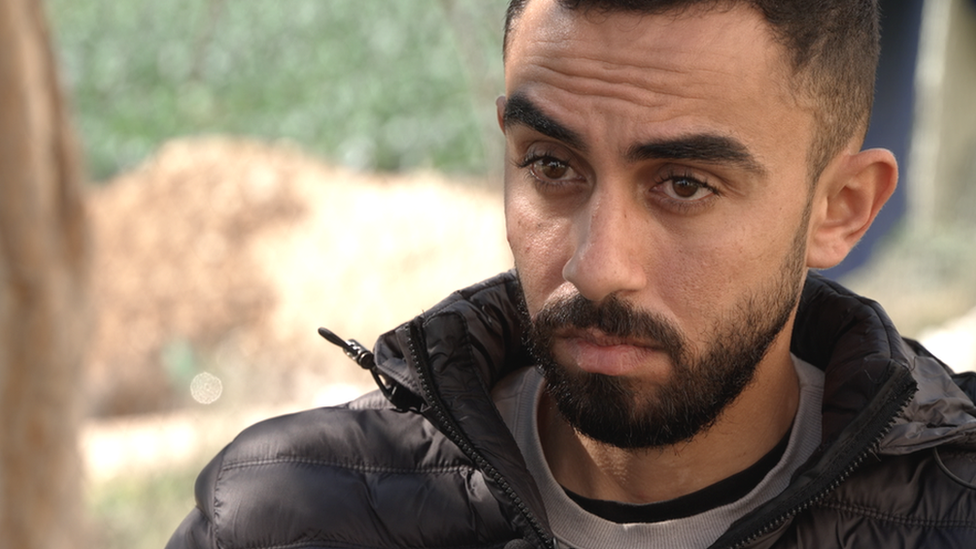
- Published27 February 2024
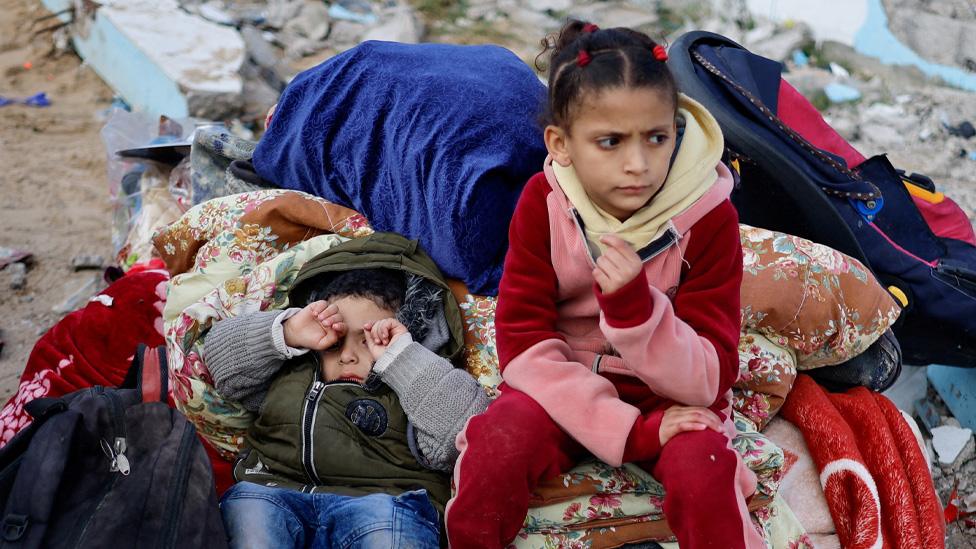
- Published24 February 2024
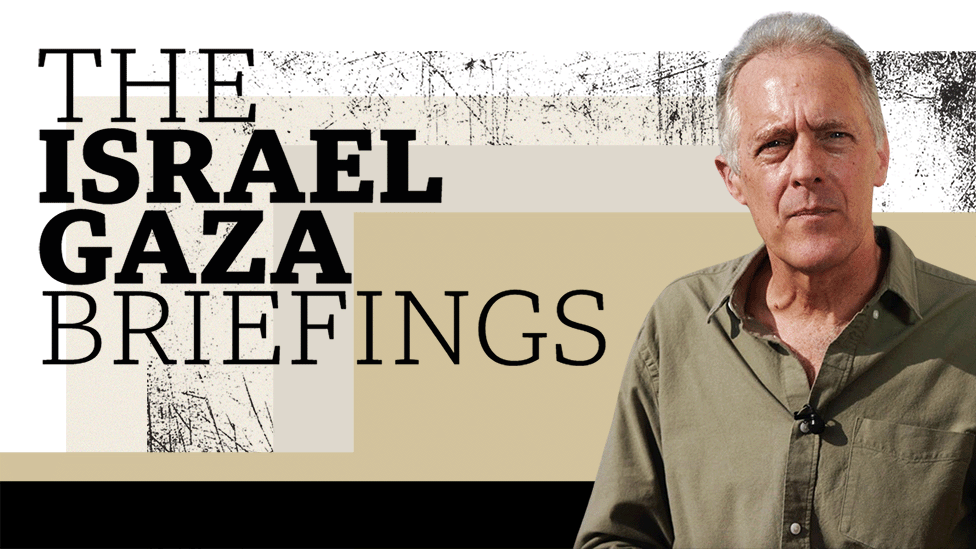
- Published16 January
